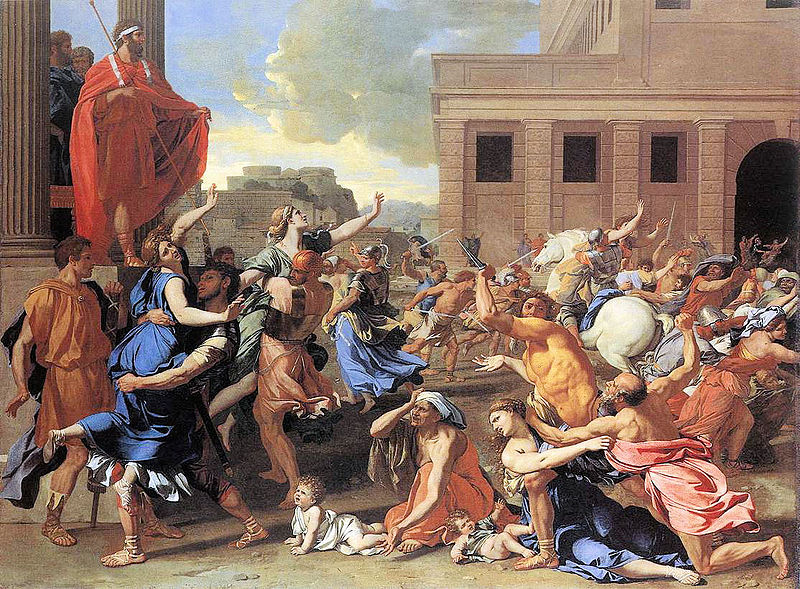
Each Monday, I'd like to delve into the historical tidbits of Classics. Obviously there are many which span across the Mediterranean over several centuries. Each week I'll select something, because its date might coincide with today's, or just for seasonal reasons.
We'll begin with an odd bit of Roman history that supposedly occurred on this date, the rape of the Sabines. Not rape in its modern meaning, but rather rape from rapio, rapere, "to snatch, seize, take." All of the following history is taken from Book I of Livy's Ab Urbe Condita.
Essentially, when Rome was first founded it was a rabble. It was many escaped criminals, and generally outcasts from other Italian tribes. This being said, it was also mostly men. Having women around is somewhat important for perpetuating your civilization. Romans went around to the various neighboring tribes asking for marriage rites, and were refused.
Thus Romulus devised a plan - he decided to invite all the neighboring tribes to a festival to honor Neptune. When everybody showed up, including the Sabine tribe, the Romans popped out and grabbed all the women.
Naturally, the neighboring tribes attacked, and were repelled. The Sabines also attacked, with the famous Roman girl Tarpeia to open the gates, expecting a reward. (She famously asked as compensation 'what they were wearing on their left arms,' meaning golden bracelets, but instead getting crushed by shields they held.) The Sabines rushed in, and it seemed the Romans had met their end, but the seized women stood between the two armies, entreating them to stop fighting:
"If," they cried, "you are weary of these ties of kindred, these marriage-bonds, then turn your anger upon us; it is we who are the cause of the war, it is we who have wounded and slain our husbands and fathers. Better for us to perish rather than live without one or the other of you, as widows or as orphans.
Both armies listened to their women. A peace was made, and soon the Sabines were folded into Roman Civilization. Rome now had its women, and began its relentless expansion across Italy.
______________________________
Nec vitia nostra nec remedia pati possumus. Livy, Ab Urbe Condita, Praefatio
We can endure neither our sins nor their cures.

